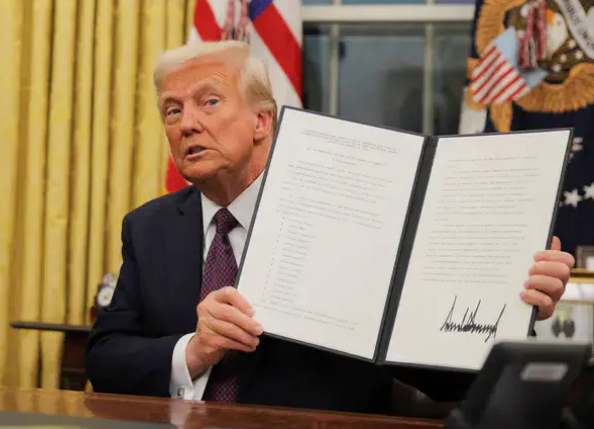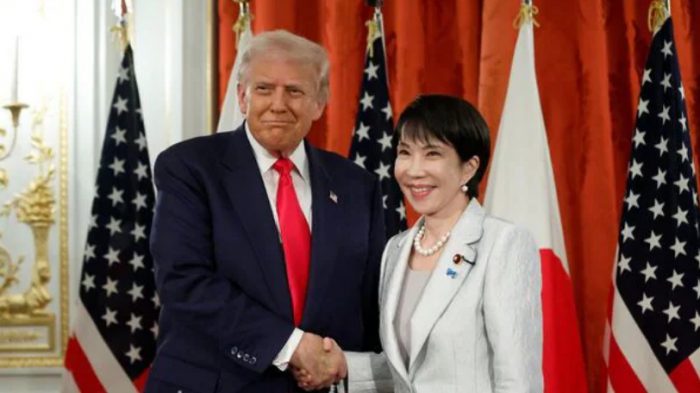After decades of diplomatic timidity, the time has come for Israel to close the vacuum: declare sovereignty over Judea and Samaria, defend our biblical patrimony, and stop letting foreign powers — fickle or fearful — dictate our destiny.
Israel is an odd paradox: over 147 countries have recognized a non-existent “State of Palestine” in the last forty years, yet when five more join the parade we react as if the world’s judgment has suddenly changed reality. For nearly six decades we have postponed and deferred asserting our most basic right — Jewish sovereignty over Judea and Samaria — and in that delay we’ve handed the initiative to others. Politics abhors a vacuum; when we hesitate, foreigners fill it with fantasies and diktats.
Donald Trump’s latest pronouncement — that he “will not allow Israel to annex the ‘West Bank’” — should be taken seriously but not literally. Trump is a performer of seismic statements; he dominates headlines and pivots with lightning speed. One day he embraces sovereignty, the next he forbids it. He can block recognition or withdraw it; he cannot erase what is already ours: decades of presence, administration, and historic connection. When Britain or France bow to transient domestic pressures and “recognize” a phantom state, the act changes little on the ground and much in tone — and it should be met with sober, sovereign responses, not theatrical hand-wringing.
There is nuance that many miss. Applying Israeli civil law to Area C or to broad swathes of Judea and Samaria is not wholesale annexation of every inch of the territory; it is a rightful extension of sovereignty where Jews live, work, and secure the land. Even under Trump’s mercurial gaze, limited, strategic sovereignty would not automatically violate whatever political shorthand he utters. More fundamentally, it is not foreign opinion that should decide our fate — it is what we do.
Critics warn that annexation will shatter the Abraham Accords. Fine. Then ask: whose security would those Gulf partners protect if Israel were weakened or butchered in another October 7–style assault? The Accords’ longevity depends on Israel’s strength, not on symbolic gestures of restraint. Would the UAE or Bahrain truly prefer a vulnerable Israel that can be assaulted from a newly created, hostile state next door? Their interests are aligned with ours: stable, prosperous neighbors, not launching pads for terror.
On Netanyahu: he is no ideologue of surrender. But he is complicated — a blend of bravado and caution. He has flirted with territorial rollback in the past and with dramatic declarations before; rhetoric has alternated with restraint. Whether he will now have the political courage to declare sovereignty remains uncertain. Don’t be surprised if this is kicked down the road to become a campaign promise rather than a reality.
So how should Israel answer the Western recognitions and the pontifications from abroad? With dignity and action. Call in ambassadors for a fierce, formal protest. Close consulates in Jerusalem that have functioned as de facto Palestinian missions. Strip diplomatic privileges and, if necessary, declare persona non grata for officials who act to undercut Israeli sovereignty. If nations want to play games at the UN, remind them of the costs of moral posturing and the realities of terror at our borders.
Let us stop flattering the fragile sensibilities of the Arab street or tiptoeing to spare the egos of dictators who fear domestic unrest. Many of the leaders in the region who signed the Accords are unelected strongmen — yet they risked nothing to normalize ties. Their citizens’ moods are manageable by palace politics; ours is the long game of nation-building and survival. If concessions to fleeting global opinion cost us our security or surrender our historic patrimony, that price is too high.
History teaches us to trust the durable over the fashionable. The prophetic words about resettling the mountains of Samaria are not mere poetry — they are the thread of a people determined to return. The choice is stark: continue to defer and watch others draw maps and issue recognitions, or seize the moment, assert sovereignty, and bind our future to our own hands. If sovereignty is an existential safeguard against another catastrophic assault, then leadership demands it.
Act decisively. Claim what is ours. Let the diplomats complain while the people live in safety and security. Enough vacillation. Israel must be the author of its fate — not a footnote in someone else’s speech.





